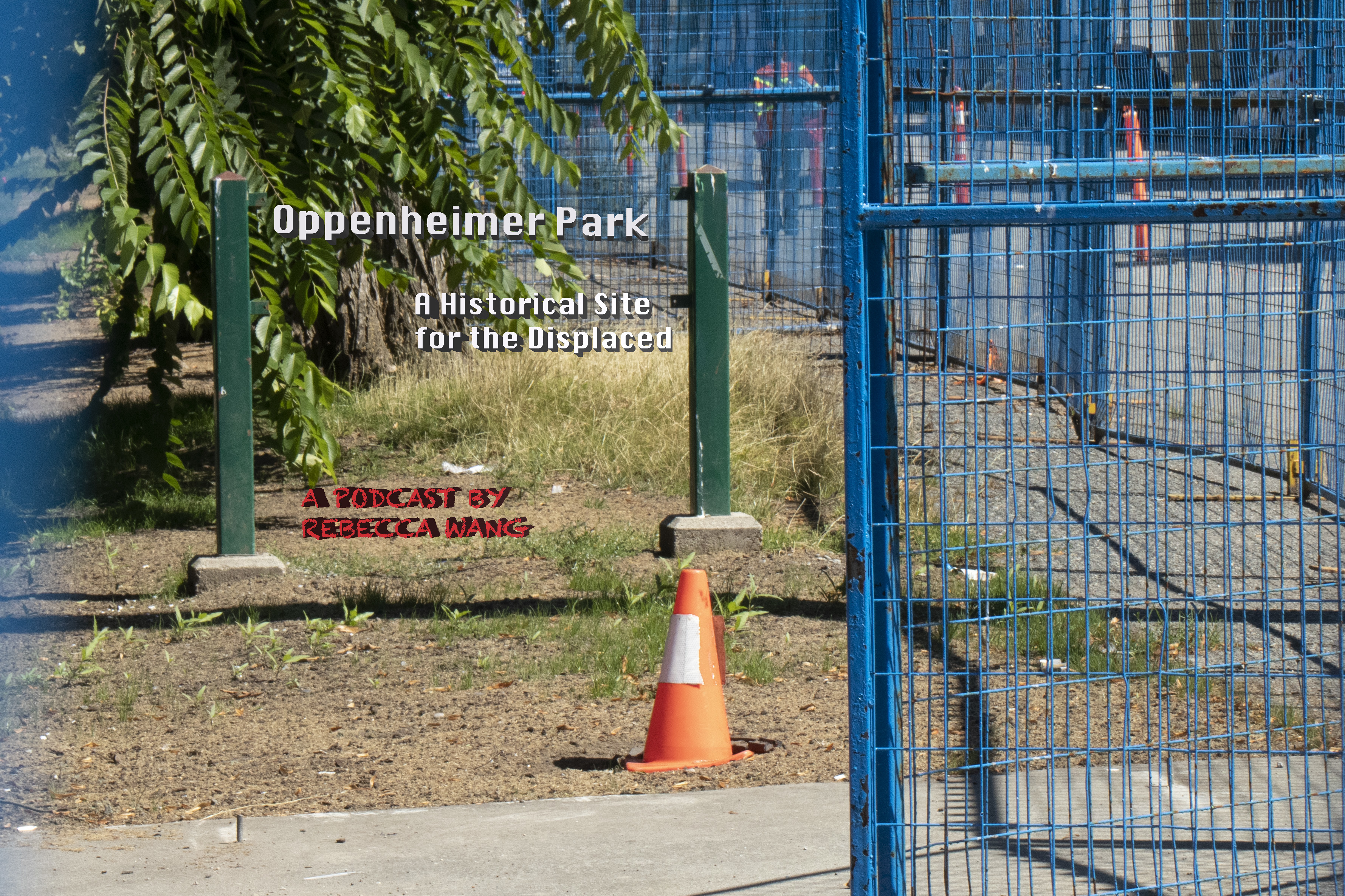New Podcast by Rebecca Wang Explores History of Oppenheimer Encampment

Posted on | Updated
Over three episodes, the visual arts student takes listeners through a history of the land and people, told in the voices of former camp residents and local advocates.
The glaring paradox between COVID-era expressions of public care and the simultaneous and repeated displacement of former residents of the Oppenheimer Park tent encampment spurred ECU student Rebecca Wang to turn to podcasting to document the ongoing story of people experiencing homelessness in one of the world’s wealthiest cities.
The podcast, entitled Oppenheimer Park - A Historical Site for the Displaced, looks at the origin and development of the Oppenheimer tent city, Vancouver’s longest-running encampment, with an eye to the history of the grounds as “a site of protest, displacement, and a sanctuary for the displaced.”
Rebecca says her own personal experience of escalating discrimination triggered in part by the global spread of COVID-19 sharpened her attention to bigotry directed at others in her city.
“As a Chinese Canadian who has been distressed by the rising discrimination and hate crimes against Asian communities since the outbreak of COVID-19, I was naturally drawn to incidents of injustice led by the pandemic,” she says.
“The dismantling of Oppenheimer tent city followed by the repeated displacement of camp residents from subsequent sites throughout the city caught my attention. In addition, there have been mounting complaints from residents of my condo since more people started to camp outside the building following the removal of the encampment. This further motivated me to dig into the story and present it within both the historical context of the land, and the current context of a housing crisis and opioid epidemic.”
"I hope by ... amplifying the voices of camp residents and those who work in close relations to them, this podcast offers an alternative perspective to the public discourse surrounding the issue."
The resulting three-episode podcast series, completed as part of Rebecca’s online coursework over the summer, foregrounds the voices of three different Downtown Eastside (DTES) residents, all of whom have lived in or worked with residents of the Oppenheimer encampment: Fiona York, coordinator and administrator of the Carnegie Community Action Project; artist and former Oppenheimer resident T.J.; and Tess, a longtime harm reduction professional.
Rebecca says she began the project with the aim of foregrounding the voices of those affected by displacement — voices she says are largely absent from mainstream public discourse around homelessness and social inequity. One consequence of which, she adds, is that displaced individuals are often underrepresented from or invisible to the civic decision-making processes that profoundly affect their lives.
“I hope by attempting to contextualize the existence and teardown of Oppenheimer tent city and the persistent housing shortage in Vancouver's Downtown Eastside, and by amplifying the voices of camp residents and those who work in close relations to them, this podcast offers an alternative perspective to the public discourse surrounding the issue,” she says.
Now entering the fourth year of her visual arts degree, Rebeccas says the jury is still out on how or even if podcasting will continue to play a role in her practice.
“To be honest, I am not sure whether it is a one-off thing,” she says. “I chose the medium because tent cities are essentially a sociopolitical issue, and a journalistic-style podcast seemed fitting, as I am only a narrator for the relevant voices and historical context. I am just glad that now there is one more option in terms of medium to realize my work in the future.”
You can hear all three episodes of the Oppenheimer Park podcast now, on Soundcloud.